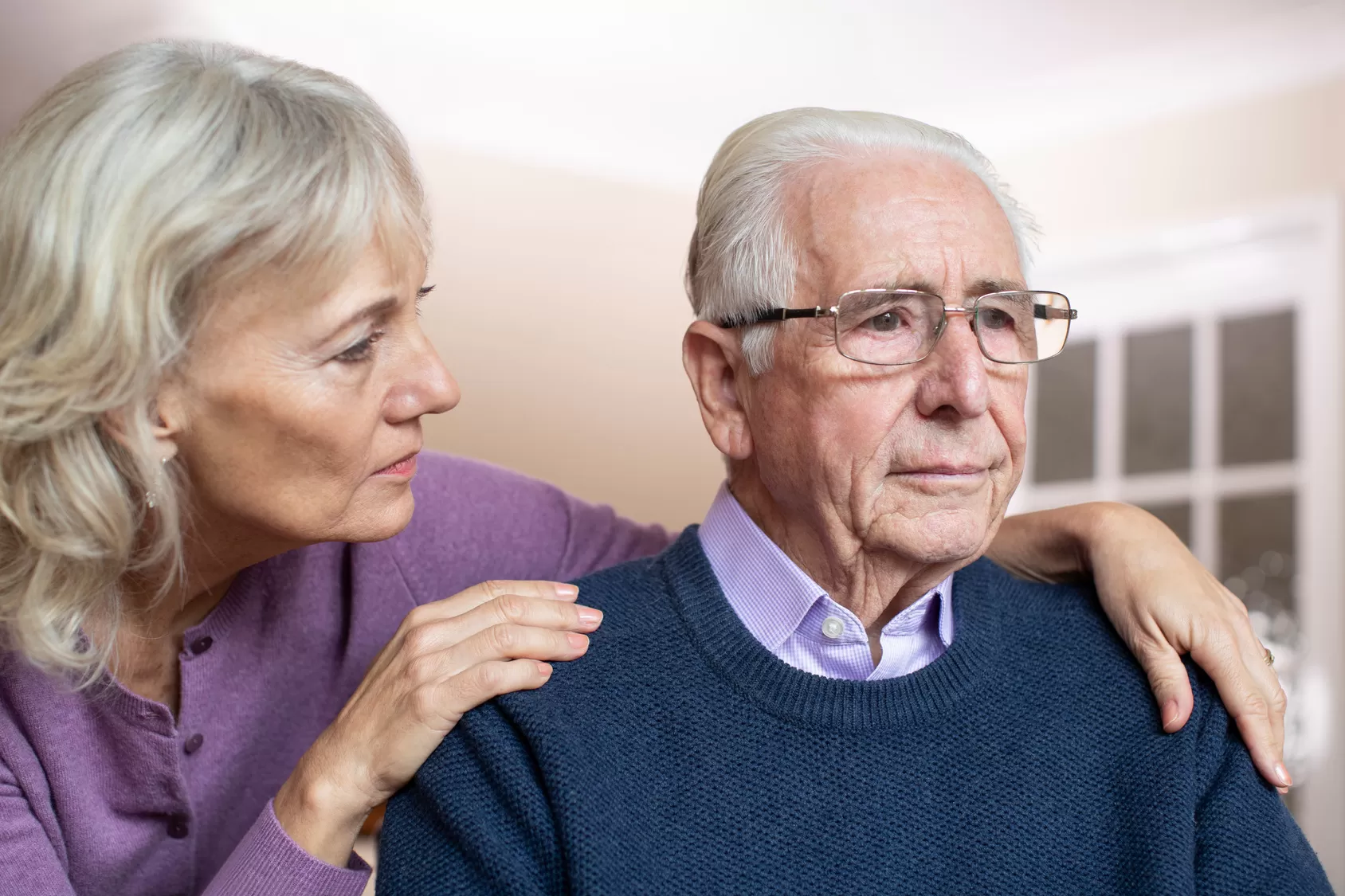If you or a loved one were recently diagnosed with Alzheimer’s disease, this can be devastating for any family. Though the illness can take months or even years to advance, it’s natural to consider what your situation might be like in the future. You and your loved ones will have many questions and concerns, chief among them being, “How well can I live with Alzheimer’s disease?” You may also be wondering, “What will it be like caring for someone with dementia?”
From safety and health concerns to personal care and housekeeping worries, the stress can be overwhelming. You can lessen the impact of Alzheimer’s and dementia on your life by creating a solid plan for how you will deal with the challenges ahead. Specialized devices, modified living environments, and in-home care for seniors with dementia can offset many risks and concerns.
If you’re caring for an Alzheimer’s patient at home, or you need in-home care for a senior with dementia right away, contact Sunny Days In-Home Care, and we can complete a complimentary in-home care consultation and send a caregiver to your home quickly. Keep reading to learn our tips on what to do after being diagnosed with Alzheimer’s or dementia.
Planning to Care for Someone with Dementia
The Alzheimer’s Association offers the Alzheimer’s Navigator, an online tools and information portal that helps you forecast your needs and create a support plan that addresses each one. It covers topics such as working with your doctor, managing symptoms, safety, legal planning, financial planning, caregiver support, care options, and daily living. You can delve into each area of concern by answering a series of questions to determine what your needs are for caring for someone with dementia. You’ll then receive an action plan that will help you figure out how to proceed.
When people request an in-home care consultation from Sunny Days In-Home Care, one of our caregiver managers visits the client’s home for a thorough discussion and evaluation. During this time, they will determine the client’s most pressing needs and principal concerns. We can help identify ways to adapt living spaces and routines to better accommodate you or your loved one’s condition and explain your care options. We treat every person with the unique dignity he or she deserves and customize our care to meet your individual needs.
What to Do After Being Diagnosed with Alzheimer’s or Dementia:
1. Develop a Support Network
Creating a support network is crucial when diagnosed with Alzheimer’s disease. It’s essential to surround yourself and your loved one with people who understand what you’re going through. This network can include family members, friends, Alzheimer’s support groups, and healthcare professionals. A support network can provide emotional backing, practical advice, and a sense of community. Sharing experiences and solutions can significantly reduce the feeling of isolation that often accompanies an Alzheimer’s diagnosis. Additionally, consider joining online forums or social media groups related to Alzheimer’s care for further support and resources.

2. Adopt Healthy Lifestyle Changes
While there is no cure for Alzheimer’s, adopting certain lifestyle changes can help manage symptoms and improve quality of life. Encourage a healthy diet rich in fruits, vegetables, whole grains, and lean proteins. Regular physical activity, even light exercises like walking or gardening, can have positive effects on mood and cognitive function. Additionally, engaging in mentally stimulating activities such as puzzles, reading, or learning a new skill can help maintain cognitive abilities for as long as possible. Ensuring adequate sleep and stress-reduction techniques like meditation or yoga can also be beneficial.
3. Create a Safe and Comfortable Home Environment
After being diagnosed with Alzheimer’s it is crucial to adapt the home environment. Simple modifications, like removing tripping hazards, installing grab bars in the bathroom, and ensuring good lighting throughout the house, can prevent falls and injuries. Consider using technology, such as GPS devices and automatic shut-off devices for appliances, to enhance safety further. Creating a routine and a calm, organized living space can also help reduce confusion and anxiety for someone with Alzheimer’s.
Understanding Types of In-Home Care for Seniors with Dementia
In-home care takes on many forms, and often in-home medical care isn’t needed, especially in the early stages of Alzheimer’s and dementia. Non-medical in-home care provides for a person’s basic needs, including bathing and grooming, bathroom assistance, light housekeeping, and cooking, as well as transportation to and from the grocery store, doctor appointments, and general companionship. In-home medical care requires the use of skilled nursing or a home health aide, and it is usually more expensive and more complex to coordinate.

Navigating the Journey with Compassion and Understanding
Being diagnosed with Alzheimer’s or dementia can be a challenging and emotional journey for both the individual and their loved ones. However, with careful planning, support, and a compassionate approach to care, it’s possible to maintain quality of life and dignity. The non-medical in-home care we provide at Sunny Days offers families peace of mind in knowing we are caring for their loved ones’ needs. Our qualified and attentive caregivers help keep clients safe and comfortable, and they understand what it takes for a family to be caring for an Alzheimer’s patient at home. Contact us today to learn more about Sunny Days’ mission to serve our clients with compassion. Call us at 724-260-5186 or email [email protected].

